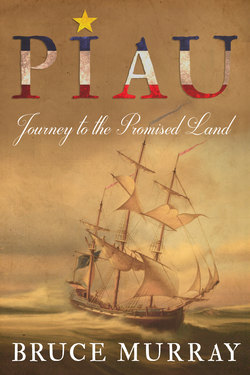Читать книгу Piau - Bruce Monk Murray - Страница 5
На сайте Литреса книга снята с продажи.
Introduction
ОглавлениеThis novel is closely based on the life and times of Pierre Belliveau, an Acadian folk hero and also an ancestor of mine. Known as Piau, Pierre was a central figure in Acadian history, helping some of his fellow Acadians to escape the British expulsion of his people in the 1750s. He was the leader of a group that eventually settled in what is now New Brunswick, establishing a settlement there.
You may wonder what motivated me to resurrect an Acadian patriarch 210 years after his death. Why not leave him to the world of cultural myths remembered by those whom author Antonine Maillet describes as “the Acadian nation”? Is it because I am a direct descendant of Piau and therefore I feel an obligation to tell his story? Perhaps. After all, he has been part of my consciousness for most of my life. I have collected a lifetime of stories about him and the Acadians from my maternal grandparents, whose own parents and grandparents and earlier ancestors had never married outside the Acadian community; from stories passed on by word of mouth by others; and from other stories published by uncles and cousins who happened to be Acadian historians. So it is natural that I, as a trained historian myself, should want to explore and relate the story of Piau’s life and great achievements. It may sound odd, but I have the mystical feeling that it was not I who chose Piau, but, rather, it was Piau who chose me. This claim requires a leap of faith on the reader’s part, I know, so I will leave it at that. My own journey to discover Piau deserves some explanation, however.
Surprisingly, the seed for this book began with my unearthing of an ancient Protestant Bible in the dresser drawer of my Acadian grandmother. A budding historian even at the age of ten — some, however, might think I could be better described as a snoop — I intuitively had a distinct impression that the Bible was forbidden fruit. According to my grandmother, who eventually caught me red-handed perusing the well-worn volume, this was the King James Bible that had been passed down to her through her father. Ironically, although the book was a treasured family heirloom, those into whose hands it had come were forbidden to read it, because it was not approved by the Roman Catholic Church. This Bible plays an important role in Piau. To my supreme sadness, the Bible was burned when my grandparents’ home went up in flames in the late 1970s.
My Uncle Harry, who was an author and Acadian historian, informed me that the Bible had belonged to one of our ancestors whose name was Piau Belliveau. It was he who first told me of the exploits of this ancestor, famous for leading his people during the expulsion of the Acadians. Not only was my uncle obsessed by our illustrious ancestor, but he was also an authority on Colonel Frederick DesBarres, who was connected in history with Piau. Their story also appears in the book.
My family, ever rich in historians, produced a written account of Piau’s life that was published in a reputable magazine while I was still in my teenage years. The author was my cousin Edward “Ned” Belliveau. Inspired by his account, I set about to find out everything I could about my famous forebear. This pursuit has continued to this day. What a journey it has been, reading about Piau in nineteenth-century histories and listening to personal accounts of his life from centenarian cousins of my Acadian grandmother.
So, there existed a considerable amount of written material on Piau, not to mention the great amount of oral history that was available about him. Still, I felt that Piau’s life hadn’t yet been properly told, and I knew that I was the person to tell it. So that is what I set out to do. Why, though, you may ask, did I write a work of historical fiction based on a lifetime of research rather than produce a non-fiction account?
I believed, as I channelled the life and accomplishments of this great Acadian figure, that hearing Piau’s voice and those of the people in his life was essential to the telling of this remarkable tale. It would allow for his story to unfold in an emotional way for the reader — Piau’s struggles could be relived as he experienced them. It would be possible to see, almost firsthand, his joys and disappointments, and to feel the hopelessness the Acadians must have felt time and time again as they were perpetually challenged by the arbitrary behaviour and decisions of the British soldiers and their officers.
So, I decided that the story of Piau’s life needed to be told not as a non-fiction history or biography but as a work of fiction. Nevertheless, despite the fact that this is a novel, all of the main events really happened, and all but two of the characters in the book are real — the only fictional characters in the book, Captain Tyrone and Madame Thibideau, play at best only minor roles in the story.
Piau is not just the story of one man’s life and his struggle for survival, however. It is a far greater story, one of an exiled people, fifteen thousand souls driven from their lands, many displaced by force and stranded in unfamiliar lands around the world. This is a case of ethnic cleansing and forced human migration on a large scale, possibly the largest of its kind anywhere until the twentieth and twenty-first centuries. This story deserves to be known. It should provide universal lessons not only to Canadians but to people everywhere.
